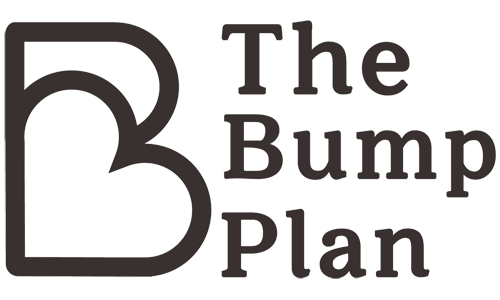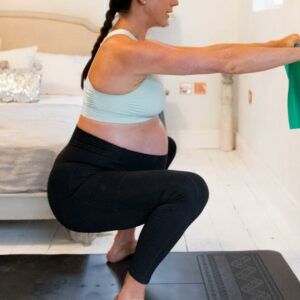When you fall pregnant your body will go through some incredible, superhuman changes in really such a short time. Some of these changes may include, thicker, longer hair, stronger nails, some women even feel sexier! Some changes are not as welcome, however, such as urinary incontinence during pregnancy. Pregnancy can play havoc with your bladder! You may only be a few weeks pregnant and already finding that you need to pee more! This can often be attributed to hormonal changes on your ever-changing body. This frequency may increase as your bump gets bigger and there is more pressure on your bladder.
For some women, these hormonal changes and growing baby bump can also lead to a weakening of your pelvic floor muscles which can then cause leakage during pregnancy. The most common form of urinary leakage during pregnancy is stress urinary incontinence, which means that urine leaks out at times when your bladder is under pressure, eg when you cough, sneeze, laugh, even run for the bus.
Tops tips to prevent and manage urinary incontinence during pregnancy
Of course, there are things that you can do not only to prevent leakage during pregnancy (and beyond) but that will also help you manage your symptoms if you are leaking urine during your pregnancy:
Pelvic floor exercises
Throughout the Bump Plan Hollie will be carrying out plenty of pelvic floor exercises with you. Your pelvic floor muscles are just like any other muscle, they need to be exercised to remain strong. I would encourage you to do your pelvic floor exercises every day, ideally 2-3 times a day. Aim to do 10 repetitions of 10 second holds and 10 fast repetitions each time you carry them out. If you are unsure of how to do them Hollie has this covered and will teach you a variety of ways of how to do them. Remember, like any other muscle it will take a few weeks, even months to strengthen them. However ,research has found that by carrying out pelvic floor exercises during pregnancy you can improve symptoms of urinary leakage
Get the KNACK!
When you cough, sneeze, laugh or lift something heavy squeeze your pelvic floor. The technical term for this is ‘the KNACK’ and is essentially a strong well-timed contraction of the pelvic floor muscles, carried out just before downward pressure is exerted on the pelvic floor and is useful in preventing any urinary leakage
Avoid constipation
A full bowel can place increased pressure on your bladder and when we are constipated we often strain to open our bowels. When we strain, this causes increased pressure on our pelvic organs (which include your bladder) and this can further weaken your pelvic floor muscles. Keeping active and eating a balanced diet and drinking plenty can help avoid constipation.
Keep hydrated
This might seem counterintuitive, surely when you leak, the more you drink the more you may pee? Well not necessarily! It is important to drink little and often throughout the day which will not only support your bladder health but also help reduce constipation. It is however useful to avoid drinks which may irritate your bladder like fizzy drinks, caffeinated drinks and of course alcohol.
Keep active and strong
During pregnancy it is really important to keep active and maintain strengthening exercises. UK Government guidelines suggest carrying out 30 minutes of physical activity at least 5 times a week. However, if you love high impact exercise but are leaking then lower your impact. Rather than running or high impact exercise classes, consider walking, using the cross trainer, static bike or of course, Pilates.
See a pelvic health physiotherapist
Pelvic health physiotherapists treat all things related to pelvic health including urinary leakage. They will help you strengthen your pelvic floor muscles and teach you other ways to care for your pelvic health throughout pregnancy.
Will I continue to leak urine after pregnancy?
I would highly recommend that as soon as you have had your baby that you commence your pelvic floor exercises. In my opinion every woman should see a pelvic health physiotherapist after having baby. But, if you have experienced urinary incontinence during pregnancy (regardless of delivery or whether you are leaking now) do ask your GP to refer you to a pelvic health physiotherapist for bespoke assessment and rehabilitation. The great news is that pelvic health physiotherapy is an extremely successful way of helping you to improve (and in most cases) resolve urinary incontinence. Remember it is common but not normal to leak urine during and after pregnancy and help is out there.
As always if you have any questions please do not hesitate to contact me via my Instagram @physiomumuk
Useful Resources
Related Blogs
- Perineal Massage: What is it and is it Worth the Hassle?
- Pelvic Floor Pregnancy: Everything You Need to Know
- Pelvic Girdle Pain During Pregnancy: What is it?
If you enjoyed reading this article on Urinary Incontinence During Pregnancy and would like to discover more about prenatal fitness and your changing body I would love you to check out my pregnancy exercise program ‘The Bump Plan’ for FREE today – simply click here to get started






